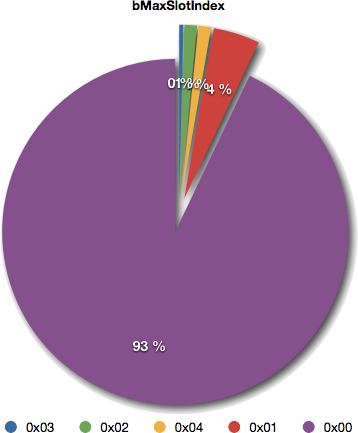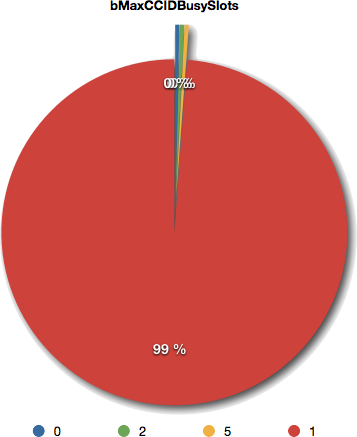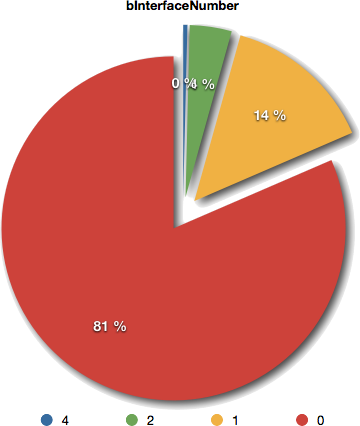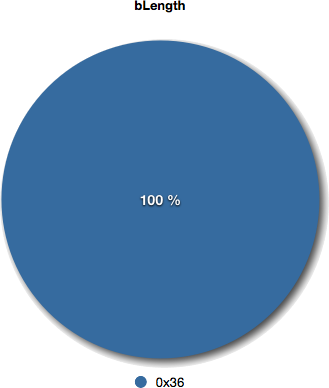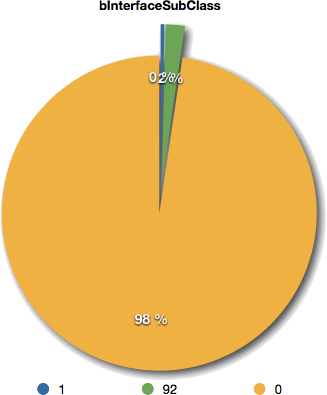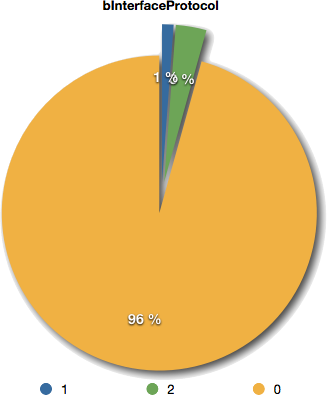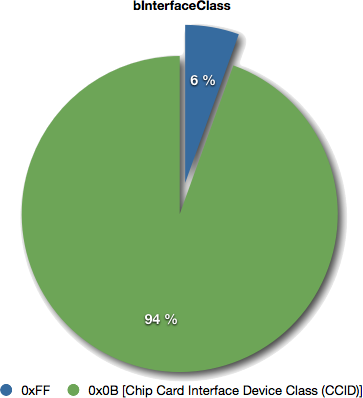Article from the serie "CCID descriptor statistics"
The bMaxSlotIndex field is a number value from the CCID USB descriptor: highest available slot on this device. All slots are consecutive starting at 00h. i.e. 0Fh = 16 slots on this device numbered 00h to 0Fh.
| bMaxSlotIndex |
# |
% |
| 0x00 |
236 |
92.91 % |
| 0x01 |
11 |
4.33 % |
| 0x02 |
3 |
1.18 % |
| 0x04 |
3 |
1.18 % |
| 0x03 |
1 |
0.39 % |
CCID readers may have more than one physical card interface. The vast majority of them (93%) are simple readers with only one card interface (bMaxSlotIndex: 0x00).
11 readers have 2 interfaces (bMaxSlotIndex: 0x01)
- ATMEL AT91SO CCID Smart Card Reader
- Alcor Micro AU9522
- Gemalto GemCore SIM Pro Smart Card Reader
- Gemalto Hybrid Smartcard Reader
- SCM Microsystems Inc. SCR 331-DI
- SCM Microsystems Inc. SCR331-DI USB Smart Card Reader
- SCM Microsystems Inc. SDI010 Smart Card Reader
- SCM Microsystems Inc. SDI011 Contactless Reader
- SCM Microsystems Inc. SDI011 Contactless Reader
- SpringCard EasyFinger Standard
- SpringCard H512 Series
- SpringCard H663 Series
Many of the 2 interfaces readers (SCM readers) have a contact interface and also a contactless interface. But SCM uses proprietary commands to driver the contactless interface so this interface is not supported by my CCID driver.
Or the reader has a contact interface and also a SAM interface (using a
ID-000 format).
3 readers have 3 interfaces (bMaxSlotIndex: 0x02)
- COVADIS Auriga
- SpringCard CrazyWriter
- SpringCard CSB6 Secure
1 reader has 4 interfaces (bMaxSlotIndex: 0x03)
- SpringCard EasyFinger Ultimate
3 readers have 5 interfaces (bMaxSlotIndex: 0x04)
- Gemplus GemCore POS Pro Smart Card Reader
- SpringCard CSB6 Ultimate
- Teridian Semiconductors TSC12xxFV.09
The value bMaxSlotIndex may be compared to the value
bMaxCCIDBusySlots. A value bMaxCCIDBusySlots > 0 indicates the reader allows to access more than one slot at the same time.
If you compare the list of readers from bMaxSlotIndex (this page) and
bMaxCCIDBusySlots you see that many readers provide more than one slot but can only talk to one slot at a time. Only the "Teridian Semiconductors TSC12xxFV.09" reader declares 5 slots and 5 simultaneous busy slots.
